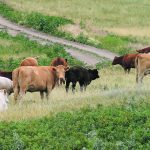SASKATOON — Saskatchewan agriculture minister David Marit announced Crown pasture lease rates have been frozen at 2022 levels for 2023. He also announced that lessees who have to decrease their stocking rate due to dry conditions will be eligible for reduced rent of up to 50 percent. He told the Saskatchewan Beef Industry Conference that […] Read more
Beef cattle

Federal ag policy causes concern
Saskatchewan agriculture minister David Marit remains concerned about the environmental aspects of some of the agricultural policy coming out of Ottawa. The federal-provincial-territorial ministers met by conference call last week ahead of the April 1 implementation of the Sustainable Canadian Agricultural Partnership. Marit said the province has yet to sign the agreement but he will […] Read more
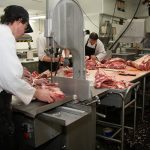
Small U.S. meat packers receive more funding from gov’t
CHICAGO, Ill. (Reuters) — U.S. president Joe Biden’s administration said last week that it was awarding another $12 million in grants to upgrade and expand three meat and poultry processing facilities in the U.S. Midwest as part of a broader $1 billion effort to encourage competition in a highly consolidated industry. The three projects, funded […] Read more
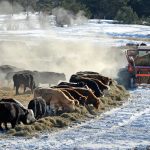
Alta. agency identifies new ag research focus
An Alberta agency that funds research to help producers reach their full potential plans to launch three new networks that will target irrigation, soil health and beef improvement. The networks will receive $10 million in funding over three years, said Mark Redmond, chief executive officer of Results Driven Agriculture Research (RDAR). “They’re necessary because they […] Read more

Forage rejuvenation pays off
SWIFT CURRENT, Sask. — Escalating land prices mean cattle producers must pay attention to the productivity of their forage stands. University of Saskatchewan economic researcher Kathy Larson said land prices in southwestern Saskatchewan have quadrupled in the last 10 years. The price per acre was $321 in 1996, rose to $506 in 2011 and in […] Read more
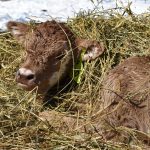
Deer liver fluke can damage liver in fetus, newborn calf
There are several liver flukes that can affect cattle, and although they are not a common parasite in Western Canada, producers and veterinarians should be aware that they can occur. The most common liver fluke in Western Canada is the giant liver fluke, which is also known as the deer liver fluke. Its scientific name […] Read more
Canfax report
This cattle market information is selected from the weekly report from Canfax, a division of the Canadian Cattlemen’s Association. More market information, analysis and statistics are available by becoming a Canfax subscriber by calling 403-275-5110 or at www.canfax.ca. Fed market disappoints Fed prices have averaged slightly more than $186 per hundredweight over the past two […] Read more
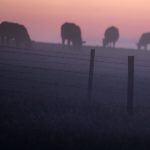
China’s ban on Canadian beef remains
It’s been more than a year since China imposed a ban on Canadian beef imports following a case of atypical BSE in a central Alberta cow and there are no signs as to when it might be lifted. Unlike the classic variant of the neurological disorder, which is largely connected to contaminated feed, atypical BSE […] Read more

Film’s re-release delights Alberta ranch family
National Film Board takes producers down memory lane after posting a 1971 documentary that features family members
The re-emergence online of a documentary film first released more than a half century ago has an Alberta ranching family looking back on its past as it faces the future. How Things Have Changed was released by the National Film Board of Canada in 1971. Although it was partly meant to be a tribute to […] Read moreCanfax report
This cattle market information is selected from the weekly report from Canfax, a division of the Canadian Cattlemen’s Association. More market information, analysis and statistics are available by becoming a Canfax subscriber by calling 403-275-5110 or at www.canfax.ca. Fed trade thin Most Alberta direct cash trade developed on Jan. 4 last week with local rail […] Read more

